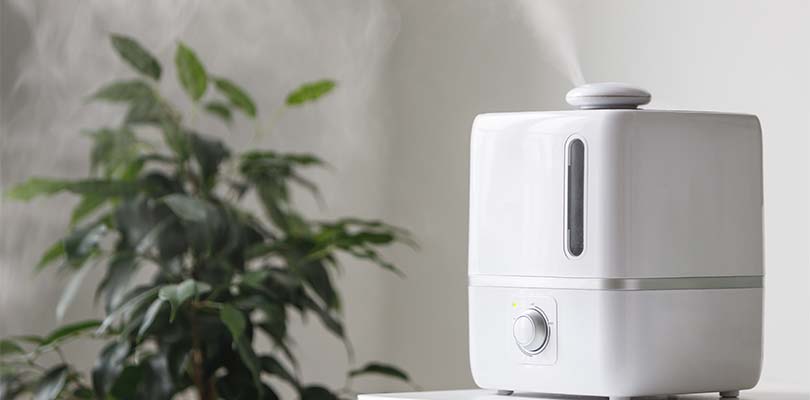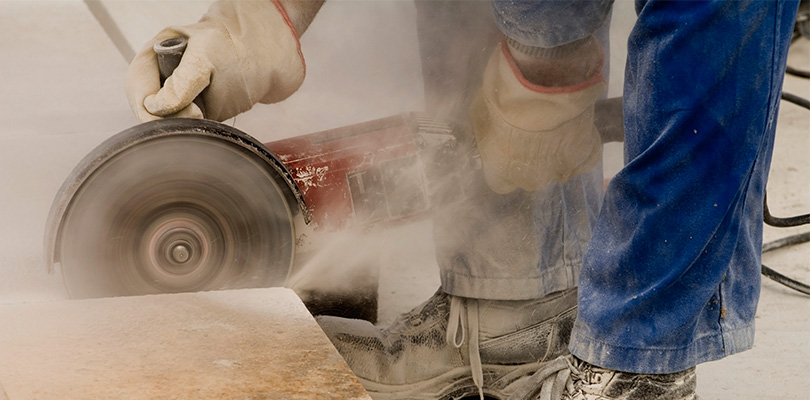Humidifier for Asthma
Asthma is a chronic lung disease, which means it lasts long-term. The lung condition causes narrowing and swelling of the airways, along with increased mucus. There are different ways to treat asthma, both medicinal and natural. One of the natural ways to help symptoms is using a humidifier for asthma.
What Are Common Asthma Symptoms
Symptoms of asthma are coughing, a tight chest, wheezing and shortness of breath. The symptoms of asthma may range from mild to severe. Asthma affects children and adults and currently does not have a cure, but the disease is manageable. One home remedy that some people may find helpful is using a humidifier. But is a humidifier safe for everyone with asthma? Continue reading below to find out.
Can a Humidifier Help Asthma Symptoms?
A humidifier is a device that adds moisture to the air in the form of water vapor. Dry air may lead to a dry throat or nose and may contribute to irritation of the airways.
But there does not appear to be a consensus on whether a humidifier is helpful for people with asthma. For example, The Asthma Society of Canada does not recommend using a humidifier for asthma, but that is not definitive advice for everyone with asthma.
In some cases, adding humidification to the air may ease airway irritation, which can reduce coughing and other asthma symptoms. It may also help loosen mucus, which makes it easier to cough out of the lungs.
One essential factor to consider if you are using a humidifier for your asthma is the humidity level. If the air inside your home is too dry, it may contribute to irritation. But if the humidity level is too high, that may be more harmful than beneficial. High humidity can promote the growth of mold and dust mites, which are common allergens that trigger asthma in some people.
Pros and Cons of Using a Humidifier for Asthma
There is no one-size-fits-all treatment plan for people with asthma. Everyone has their own unique course with the disease. Using a humidifier may work for one person and not another. There are a few pros and cons to using a humidifier to treat asthma symptoms.
One benefit is the added moisture to the air may decrease airway irritation, which might ease certain symptoms. For example, humidification may reduce a dry cough, which is a common asthma symptom, especially at night.
But the main disadvantage of using a humidifier is the potential to increase the presence of allergens. Increased moisture might make it the perfect environment for certain allergens, such as mold, to thrive. Higher levels of allergens may mean more asthma symptoms for people who have allergic asthma. In addition, if the air is too moist, it can feel heavy, which can make it seem harder to breathe.
If you've been recently diagnosed with severe asthma, here is everything you need to know about the condition ranging from symptoms to treatment options.
Precautions When Using a Humidifier for Asthma
If you do try using a humidifier, it is helpful to choose the right type of device for your needs. There are warm-mist and cool-mist humidifiers. Warm-mist humidifiers are also called vaporizers. They have an internal mechanism that heats the water to a boil and releases a vapor or stream into the air. A cool-mist humidifier does not heat the water. It releases water vapor into the air, but it is not warm.
Keep in mind that heat and humidity can make asthma worse in some cases. For example, a small study published in The Journal of Respiratory and Critical Care Medicine found that hot, humid air may increase asthma symptoms in some people.
The study involved 12 people and half had asthma and half did not. When exposed to hot, humid air, the asthma group had a significant increase in airway resistance compared to the non-asthmatic group. Increased airway resistance makes it more difficult to breathe. So, it may be best to try a cool-mist humidifier first and see if that helps ease symptoms.
Tips for Using a Humidifier for Asthma Symptoms
If you do try using a humidifier to help reduce asthma symptoms, it is essential to keep certain precautions in mind.
Place Fresh Water in the Humidifier Daily
Be sure to change the water daily when using a humidifier. If you are using a cool-mist humidifier, consider using sterile or distilled water to prevent contamination with bacteria. According to the
American Academy of Allergy, Asthma, and Immunology, tap water can leave mineral deposits behind that may promote bacteria growth.
Clean the Humidifier Each Day
Always empty the leftover water out of the humidifier and clean it daily. Clean and dry the humidifier every day before filling it up again.
Consider a Cool-Mist Instead of a Steam Humidifier for Children
Since a warm-mist humidifier can burn someone if knocked over, it is best to keep it away from young children. When using a humidifier for asthma in children, a cool-mist may be the better option.
Monitor Humidity Level
Too much moisture in the air can also lead to problems. According to the Mayo Clinic, indoor humidity levels are best between 30% to 50%. If you are going to use a humidifier, buy a hygrometer to monitor humidity levels. A hygrometer can be found at many department stores and hardware stores.
While using a humidifier may not be right for everyone with asthma, it might ease symptoms for some people. Just be careful and avoid increasing humidity levels too much.







